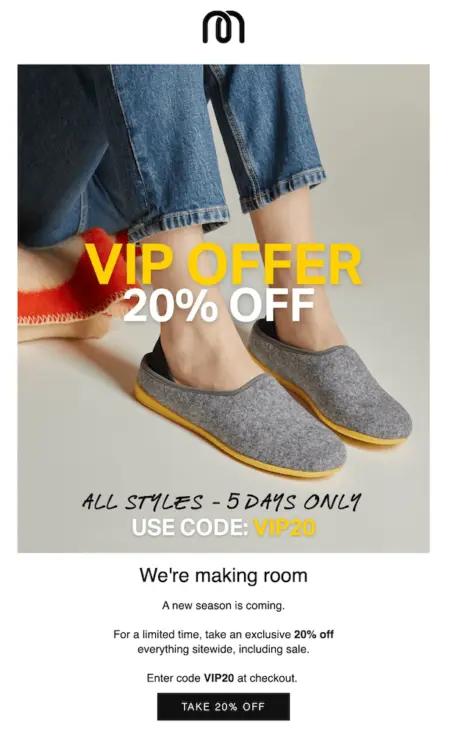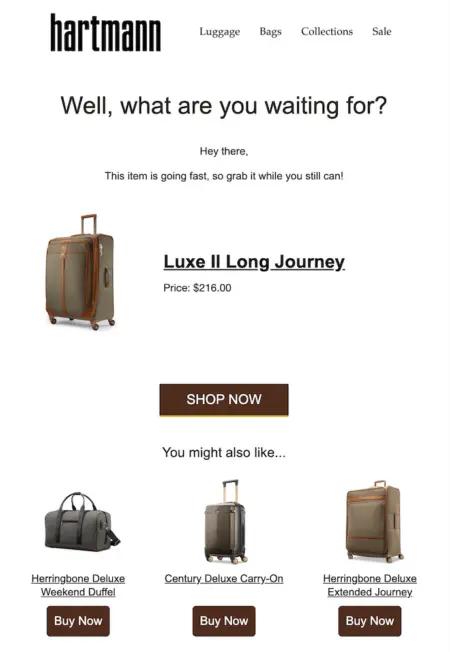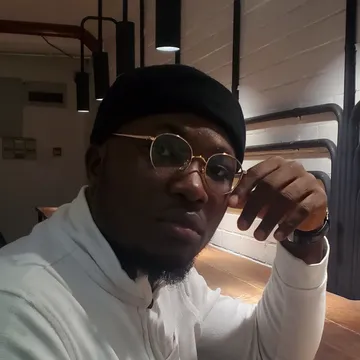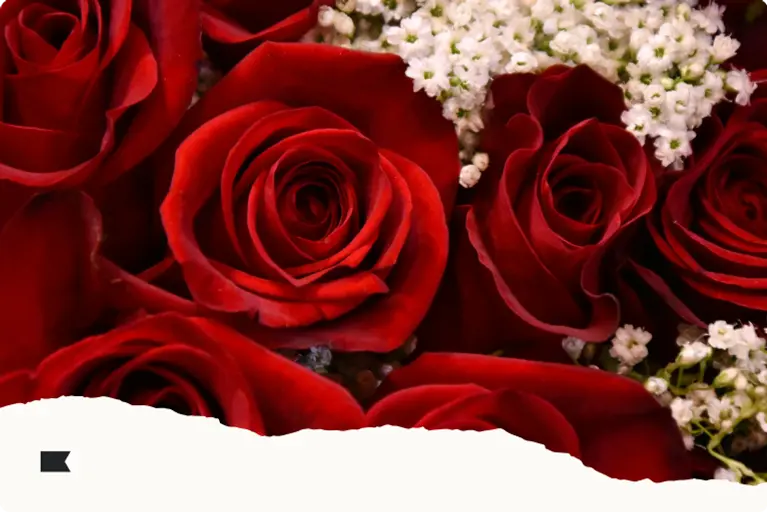Black Friday Cyber Monday keeps getting bigger every year, with Klaviyo customers seeing record-breaking numbers in 2024.
But while millions of people are ready to spend on the day, there’s also a ton of competition trying to win those folks over.
Shoppers are receiving offers left and right as early as late September. If you don’t have a game plan that gets your message across at the right time and place, you’re leaving money on the table.
Here are a few proven BFCM promotion ideas to help make sure that doesn’t happen.
1. Use every marketing channel at your disposal
Taking an omnichannel approach during Black Friday and Cyber Monday is a near-foolproof idea. That’s how you reach your customers at every touchpoint.
Research like Klaviyo’s 2024 consumer spending report shows that consumers interact with brands through various channels, including email, SMS, social media, and even in-app notifications. Relying on a single channel, like paid advertising, limits your potential reach and risks missing out on customers who have different marketing preferences.
Of course, taking a omnichannel approach to BFCM promotional messaging doesn’t mean you should do the exact same thing across every channel. Every channel can, and probably should, tell its own story in a way that makes your overarching message feel complete.
You might, for example, send an email unveiling your top BFCM deals early to your most engaged subscribers, while simultaneously posting user-generated content about what’s selling out quickly on Instagram or TikTok. Then, cap it off with SMS reminders featuring one-click purchasing links for last-minute buyers.
Olive oil brand Graza does omnichannel marketing well year-round, but you could do something similar around BFCM to coordinate your channels without making them too redundant during a particularly noisy marketing time for consumers.
Graza’s Instagram is filled with delicious recipes, funny videos, helpful tips, and, once in a while, brilliant product unveilings, as in this 3-day sequence:
This reel that tells us “Something crunchy” is coming soon. What is it? We don’t know—and that’s the point. This post not only sparks curiosity but also boosts engagement.
The day after the reel, we get an image teasing the new product. But, wait, what’s that speck on the screen? Are followers finding an answer if they zoom in? Nope! That’s just a piece of oatmeal.
Finally, the big reveal. We get Grazola—crunchy, sweet, salty granola. And yes, the link’s in bio, so everyone can place their order for it in only a few clicks.
While that kind of product unveil may be a smart marketing and CRM strategy for teasing your upcoming BFCM deals, take a look at how Graza uses email marketing a little differently. Here, they share exciting incentives with their subscribers, from a 24% discount on a 4-pack of their “Drizzle” olive oil to a free “cooklet” with purchase.

Source: Milled
Black Friday promotion tip: SMS, in particular, can be your brand’s secret ingredient to a successful Black Friday sales season. Plenty of people prefer SMS over other marketing channels, according to Klaviyo’s recent SMS consumer research with Recharge, which also found that text messages have consistently proven to speed up time to purchase.
As Michael Pattison, director of global digital strategy at Klaviyo, says, “Almost no other marketing channel offers the open and click rates that SMS does. Not only does the ROI prove strong, but many prefer SMS over email, social, and other channels when interacting with brands they love.”
2. Tease your upcoming deals and drops
If there’s one thing to take away from Graza’s masterclass on teasing a new release, it’s creating a sense of mystery and incentivizing engagement with your upcoming promotions. Since you’ll be competing hard with other brands in the BFCM lead-up, you need to motivate your customers to stay engaged until your offers drop.
You can do this by following Graza’s social media strategy: using fun Instagram or TikTok videos to make your audience guess what’s coming, then using email or SMS to reward the ones who do. This can work wonders for engagement, helping you spread your message with a little bit of help from the algorithm.
But you can also build mystery with your owned marketing channels alone. Here, watch how intimate apparel brand Lunalae balances intrigue with transparency, revealing just enough to get their audience excited but leaving out key details to create a curiosity gap. Readers see the new set and gorgeous fabrics, but what exactly is “coming soon”? Guess they’ll have to stay tuned to find out.

Source: Milled
Black Friday promotion tip: If you have data showing that your subscribers have been visiting product pages, making wishlists, and adding products to their carts without actually buying them, that’s a good sign that they want what you’re selling. All they’re doing is waiting for the nudge—in this case, the BFCM deal you’re cooking up.
3. Tap into FOMO
Fear of missing out (FOMO) is a powerful motivator, and BFCM is the perfect time to tap into it. When people see that time is running out or that stock is limited, they may be more likely to buy something because they don’t want to miss out on a good deal.
Phrases like “only 5 left” or “24 hours remaining” may push customers to make quick decisions. And whether it’s on a form on your website, in an Instagram story, or in an email, a ticking countdown clock always adds that extra layer of urgency.
Take a look at this example from Lectric eBikes. The first thing a reader sees when they open the email is the countdown timer and the words “Ends tonight.” Then, as the reader scrolls, the email reinforces the urgency message with clear, but not pushy, “last chance” wording, reminding customers that if they don’t act now, they’ll miss out.

Source: Milled
Black Friday promotion tip: Make your BFCM offers more tempting by incorporating customer testimonials into your messages. In ecommerce, product reviews are a crucial way to let your happiest customers do your marketing for you.
4. Create excitement with limited-edition holiday exclusives
Some brands manage to generate massive BFCM sales without offering a single discount. Their secret: limited-edition products that customers simply can’t resist.
Like time-restricted sales, holiday exclusives tap into the FOMO that drives so much of BFCM shopping behavior. When something special is available only during this brief window—and in limited quantities—it creates an urgency that discounts alone can’t match.
The most successful limited editions are products customers have been asking for or variations on bestsellers that feel special and giftable. These products should feel like a genuine treat for your loyal customers.
Jones Road Beauty, for example, takes an approach to BFCM that perfectly aligns with their premium brand positioning. Instead of slashing prices on their high-end makeup products, they create excitement through exclusivity.
“We feel like we don’t need to discount,” says Cody Plofker, CMO at Glossier. “We’re able to do other things to generate demand at these peak moments.”
Their strategy in 2023 was to release their highly anticipated Mini Miracle Balms—smaller versions of their bestselling face highlighter—only during the BFCM weekend. These limited-edition products became instantly coveted items customers couldn’t get any other time of year.
To build anticipation, they began driving targeted traffic to a dedicated Klaviyo sign-up form 4 days before the drop. Customers who signed up would receive immediate notifications when the Minis launched. This form converted at a rate of 59.2%—meaning it created a sizable audience of eager shoppers ready to buy the moment products went live.
As a result, Jones Road generated as much revenue in the first 30 minutes of Black Friday 2023 than during their entire BFCM weekend the previous year. Even better, they accomplished this without devaluing their brand with deep discounts.
5. Use historical data to optimize your BFCM timing and messaging
The difference between a good BFCM campaign and a great one often comes down to timing. When every brand is flooding inboxes with offers, showing up at exactly the right moment can make all the difference.
This is where the customer data you’ve collected with your B2C CRM becomes invaluable. It’s data that can help you dig into when your subscribers and customers have historically engaged the most. Do they click on emails during lunch breaks? Buy from texts when they’re watching TV in the evening? The patterns are there if you look for them.
Beyond timing, your data can tell you which customer segments respond to which types of messaging. During BFCM, some people may act when you send that first teaser, whereas others will wait until the very last minute to see how steep the discounts get. Matching the message to the audience is what can dramatically improve conversion rates.
For handcrafted watch brand Shinola, preparation for BFCM success started months before the holiday season. They set a strong foundation by diving deep into their customer data well in advance.
Instead of waiting until November, they studied past engagement patterns to identify which customers responded best to which types of messages. They showed their most engaged customers promotional emails featuring product categories each segment had previously clicked on or purchased. They also featured outlet offerings to disengaged subscribers who usually shopped discounts, and retargeted non-openers of key campaigns with repeat sends.
By paying attention to these patterns, Shinola boosted email revenue 22% YoY and revenue per recipient 48% YoY during BFCM.
6. Give your VIPs early access and discounts
Your brand’s VIPs—people who have spent a certain amount of money with your brand or placed a certain number of orders—are your most loyal and valuable customers. They’re also the ones most likely to go on a shopping spree during BFCM, so it’s a smart idea to do what you can to make them feel special.
In 2023, apparel brand POPFLEX did this by creating a password-protected early-access sale reserved for customers in the top two tiers of their loyalty program. The strategy drove sales and created excitement for their BFCM sale.
“When the doors opened for them to shop, they felt like they had first dibs,” says Jen-Ai Notman, POPFLEX’s VP of marketing. “People converted really quickly.” In fact, POPFLEX went on to record the highest revenue hour of the year during that early access period.
A VIP discount is another way to incentivize your top customers to shop early and shop big. Here, see how footwear brand mahabis offers VIPs a sitewide discount for a limited amount of time, and makes sure they know this discount is for VIPs only. It’s not much of a VIP perk if it’s available to everyone, is it?

Source: Milled
7. Collaborate with influencers to reach more people
Collaborating with influencers, preferably in your niche, is a stellar way to reach audiences who are likely interested in your products but aren’t familiar with your brand.
As long as the collaboration isn’t forced, influencer partnerships can yield massive results. Brands like Fashion Nova have become household names, in part, because of their collaboration with influencers—both big and small.
Of course, not everyone can land big names like Cardi B or Kylie Jenner, but that shouldn’t discourage you from reaching out to influencers to plan your Black Friday Cyber Monday strategy.
Here, see how fragrance brand Snif collaborates with lifestyle influencer Tieghan Gerard to create a new product and inform subscribers it’s hitting the virtual shelves. You could do something similar, unveiling a new product during BFCM to capitalize on the fact that everyone will be shopping during the weekend.

Source: Milled
If creative or product-development partnerships aren’t something you’re interested in, engaging in paid partnerships with influencers or micro-influencers, like Glossier does here, can also be a lucrative strategy. Several social media posts promoting your products could help you reach new audiences and keep your brand top of mind come Black Friday.
EMBED TikTok video here: https://www.tiktok.com/@hannahjuneva/video/7342270479392197895
Source: Hannah Juneva TikTok
Black Friday promotion tip: You can even use the influencer approach to grow your subscriber lists in the weeks leading up to BFCM.
Let’s say you’re partnering with an influencer on a top-of-funnel digital marketing campaign, and you’ve built out a special landing page at a vanity URL where the influencer is sending their audience. Launch a specific sign-up form for that page only, as well as a unique welcome series featuring the influencer endorsing your company.
8. The gift-giving season starts with BFCM—so lean into it
BFCM marks the unofficial kickoff of the holiday shopping season, and for many customers, it’s all about finding the perfect gifts for loved ones. This is the time to lean into the gift-giving spirit and tailor your marketing efforts to reflect it.
Your BFCM gift guide will depend on what your brand is selling. If you’re selling toys or kids’ clothes, tap into the parental desire to make kiddos chipper on a Christmas morning. If you’re selling jewelry, focus on your products’ romantic appeal.
If your brand doesn’t sell something traditionally considered a gift, take a leaf out of FluffCo’s book. What do people enjoy doing when it’s cold outside? Staying inside and keeping warm—and FluffCo brilliantly taps into that desire. For this luxury home goods brand, it’s all about cozy nights and at-home spa days and turning practical items like pillows and bathrobes into thoughtful gifts.

Source: Milled
9. Make it easy for your customers and bundle up your products
Bundle deals work because they offer customers more value for their money—plain and simple. When shoppers see they can get more products for a lower price than if they bought them separately, it triggers that feeling of getting a great deal—and who doesn’t love that during BFCM?
When crafting your own BFCM bundles, think about how you can remove friction for your customers. Are there complementary products that naturally go together? Can you help them solve a problem with a one-stop purchase?
The more value you can show, both in terms of cost savings and experience, the more irresistible your bundle deals will be.
In this email, home essentials brand Snowe offers 20% off a “bath refresh” bundle: towels, bathrobes, and bath mats. But it’s not just about the savings. The email also taps into the practical and emotional aspects of shopping, highlighting the utility of upgrading bath essentials and allowing readers to picture a cozy, spa-like experience in the comfort of their homes.

Source: Milled
10. Turn one purchase into two (or more)
Cross-selling and upselling during BFCM is like striking gold twice. When customers are already in the buying mindset, offering them complementary products or a premium version of what they’re purchasing is a stellar way to increase average order value (AOV).
Best of all, this is a BFCM promotion idea you can put entirely on autopilot by incorporating personalized product recommendations into your email and SMS automations.
For example, if someone is looking for a new suitcase, finds it, and adds it to their cart but doesn’t buy, you can nudge them in the right direction by not only reminding them about what they left behind, but also offering travel accessories.
If this sounds oddly specific, it’s because we’re thinking of this cart abandonment email from Hartmann Luggage.
After a customer shows interest in a particular product, the luggage brand follows up with a simple yet effective message: “Well, what are you waiting for?” Hartmann reminds the shopper of the product they looked at, and while they’re at it, they recommend accessories—a carry-on and duffle—both useful to frequent fliers and avid travelers.

Source: Milled
Up-selling works in a similar way. If someone wants to buy a basic version of a product, show them the deluxe version that offers a few extra perks for just a slightly higher price tag. With the right deal, they may just upgrade—and feel like they’re getting an even better value.
In fact, Hartmann’s email does this, too. Just check out the third product in the “you may also like” section—it’s a bigger, better, and more expensive suitcase.
11. Offer exclusive gifts with purchase instead of discounts
Not every BFCM promotion needs to scream “40% OFF!” in big, red letters. Sometimes, the most effective strategy is offering something your customers can’t get anywhere else.
Gifts with purchase create that magical “getting something for free” feeling while helping you maintain your profit margins. Plus, they give customers a chance to try products they might not have chosen themselves, potentially leading them to purchase more products in other categories.
Patrick Ta Beauty nailed this approach during BFCM 2024. Instead of slashing prices, they offered a complimentary gift worth $96—an eyeshadow palette, lip crème, and mini tote—for customers who spent $150 or more.
This BFCM promotion idea drove 8x YoY growth in Klaviyo-attributed revenue during BFCM, as well as higher AOV—all while letting new customers discover multiple products at once, creating opportunities for repeat purchases long after BFCM ends.
12. Develop post-BFCM nurture strategies to extend customer lifetime value
One of the biggest mistakes brands make during BFCM is to treat it as a finish line rather than a starting point. The real opportunity isn’t only the weekend’s sales—it’s in converting those holiday shoppers into year-round customers.
Smart brands plan their post-BFCM nurture strategy well before the first Black Friday email goes out. Specifically, they use the data collected in their B2C CRM to create smarter segments and dedicated flows for new customers acquired during the holiday rush.
For consumable products, replenishment reminders timed to product use can drive predictable repeat sales. For non-consumables, thoughtfully timed cross-sell recommendations based on initial purchases can expand a customer’s collection.
Health brand Happy Way turned this approach into a science. After driving significant list growth during BFCM (73% YoY increase in sign-ups), they implemented automated flows to boost retention post-holiday: personalized reminders 60 or 90 days after purchase, complete with recipe ideas and complementary product recommendations based on previous purchases.
“We know Klaviyo is working because customers are redeeming discount codes only shared in time-sensitive campaigns,” says Hien Nguyen, co-founder of Happy Way. “It shows the power of sending targeted messages to the right customer at the right time.”
Plan to put these BFCM promo ideas into action
It’s never too early to start planning for Black Friday Cyber Monday. With 74% of consumers now expecting personalized experiences from brands, according to Klaviyo’s future of consumer marketing report, this year’s BFCM needs to tailor offers to customer data to succeed.
Your B2C CRM is the engine that makes this possible—centralizing customer data, email and SMS automation, and analytics in one place. The result is a personalized customer journey from brand discovery to post-purchase, year-round and informed by real customer interactions with your brand.
The best BFCM strategies aren’t just about driving short-term sales. They’re about creating memorable experiences that transform one-time holiday shoppers into loyal, year-round customers. When you have all your customer data working together in a unified platform, you can continue the relationship long after the holiday decorations come down.
Power smarter digital relationships with Klaviyo SMS.




